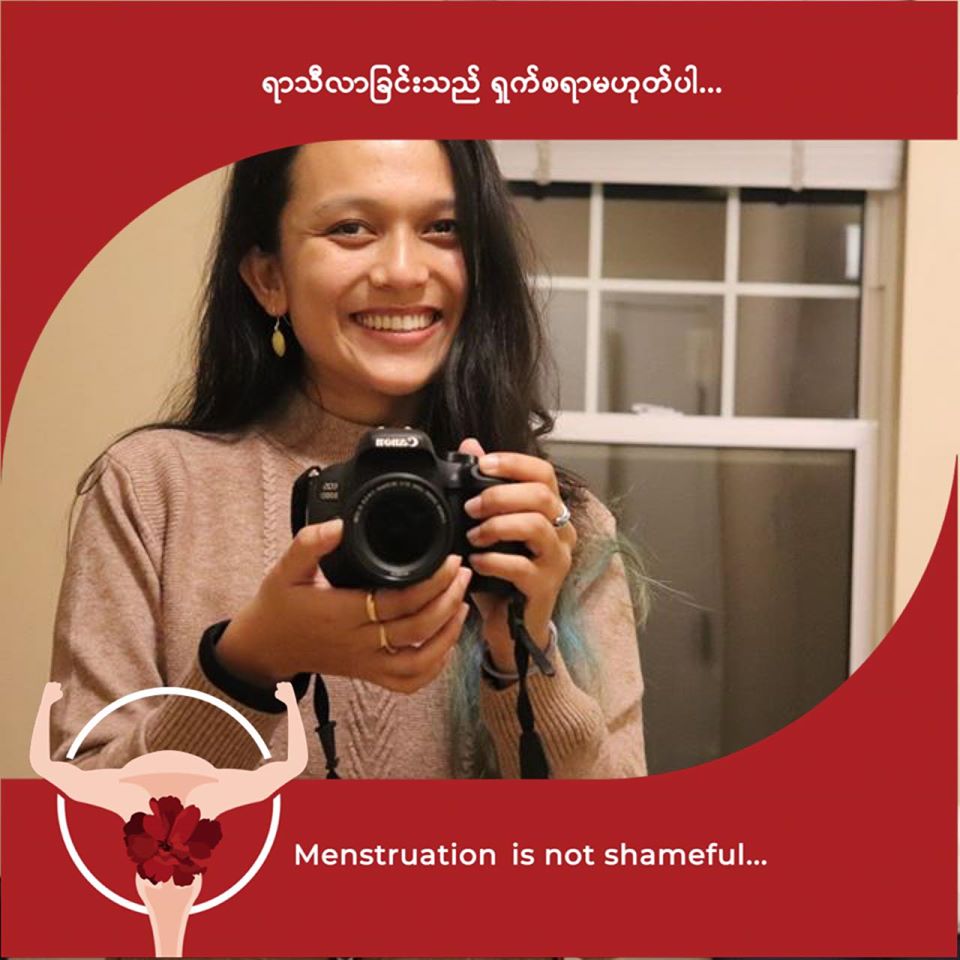
Don’t offer alms to monks, no visiting monasteries, and forget about eating tealeaf salad or drinking milk.
Girls and women are told some bizarre superstitions about menstruation in Myanmar, where menstrual periods are widely stigmatized.
But grassroots activists the Purple Feminists Group today launched a campaign challenging the stigma, encouraging people to share their stories about menstruation on the group’s Facebook page using the hashtags #MenstruationIsNotShameful, #PeriodisPowerful and #DignifiedMenstruation.
Its founder Nandar, 25, wants to “engage with as many people as we can” so the “conversation becomes normalized and people no longer feel ashamed to talk about something that happens naturally," she told Myanmar Mix.
The campaign wants social media users to include a thematic red frame in their profile pictures and has planned several spin-offs, including a podcast with a health expert that will deconstruct beliefs on taboos such as if a woman should touch anything during menstruation.
Four people from different religious backgrounds will share their stories on video about menstruation, said Nandar, and a panel discussion along with an art performance will give people an opportunity to discuss the topic in person.
The Nepali-Myanmar activist was sent to someone else’s house during her first period, in accordance with local cultural beliefs that a woman’s “first period should not be under her parent’s roof,” she said.
“I clearly remember feeling terribly sad and vulnerable as if I lost a part of me after bleeding,” she added.
During menstruation she was not allowed to play sports, enter a temple, or even touch her brothers or father.
One woman told the campaign that “the reason many of us do not have a positive view of menstruation is due to women.”
“Women are the first teacher of this matter and are usually giving the wrong information,” she said, adding that many people in Myanmar believe only women who have lost their virginity use tampons and menstrual cups.
She began using a tampon six months ago, which she described as “so freeing” compared to sanitary napkins.
In Myanmar, three out of four unmarried adults have never had sex education, according to a 2019 survey of 1,000 people aged 18 to 47 years old by family planning service DKT International.

